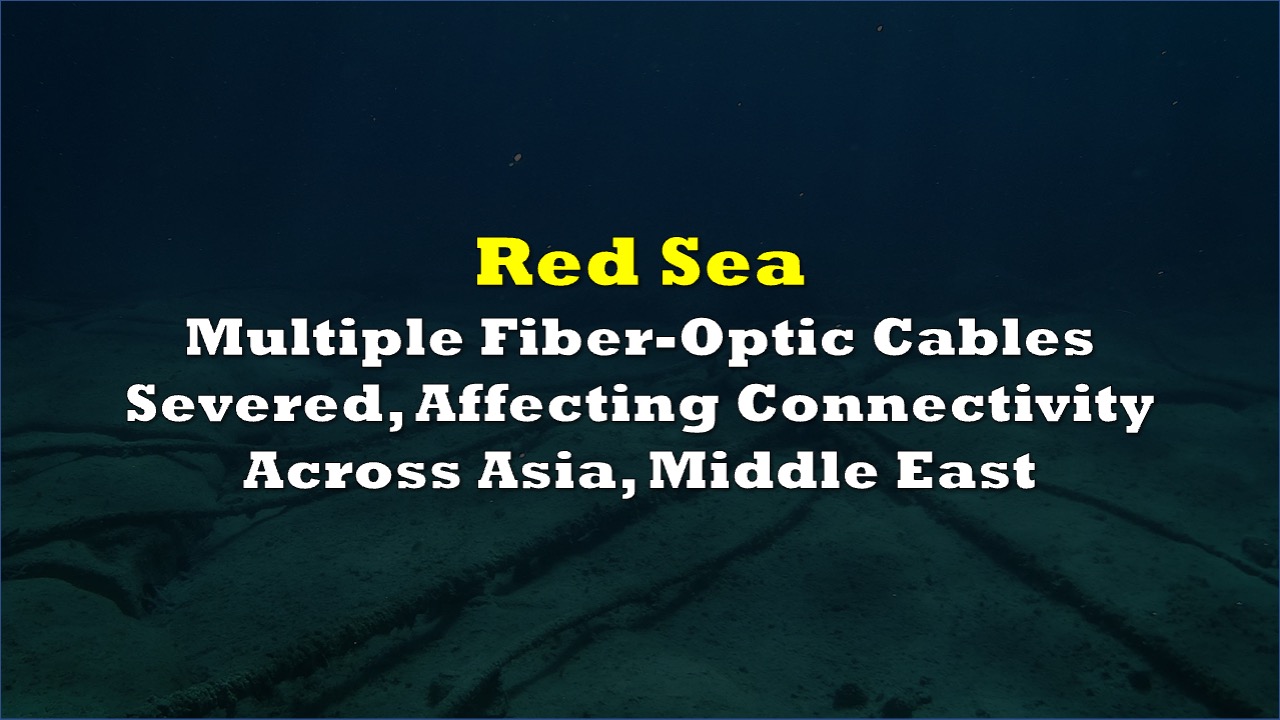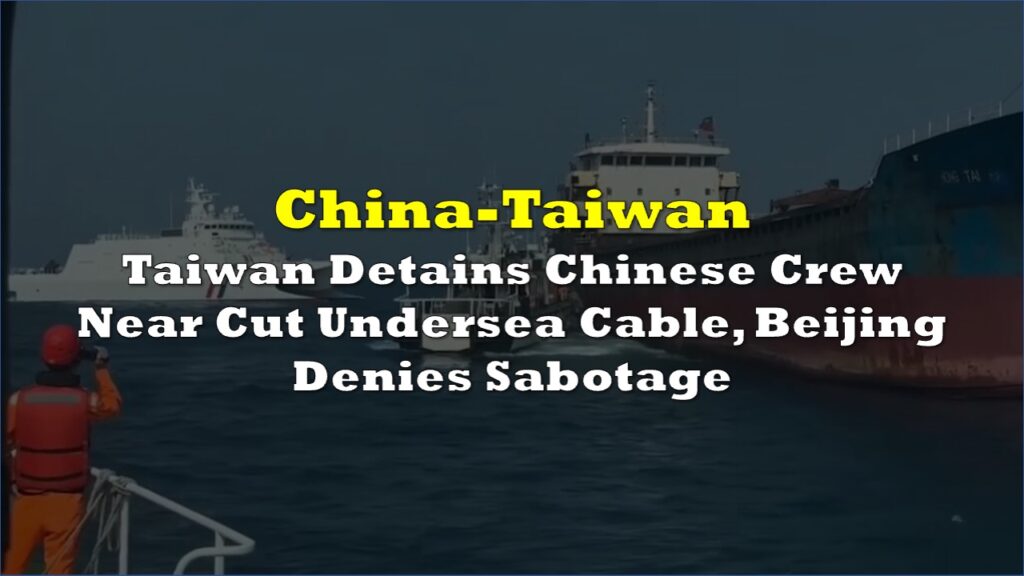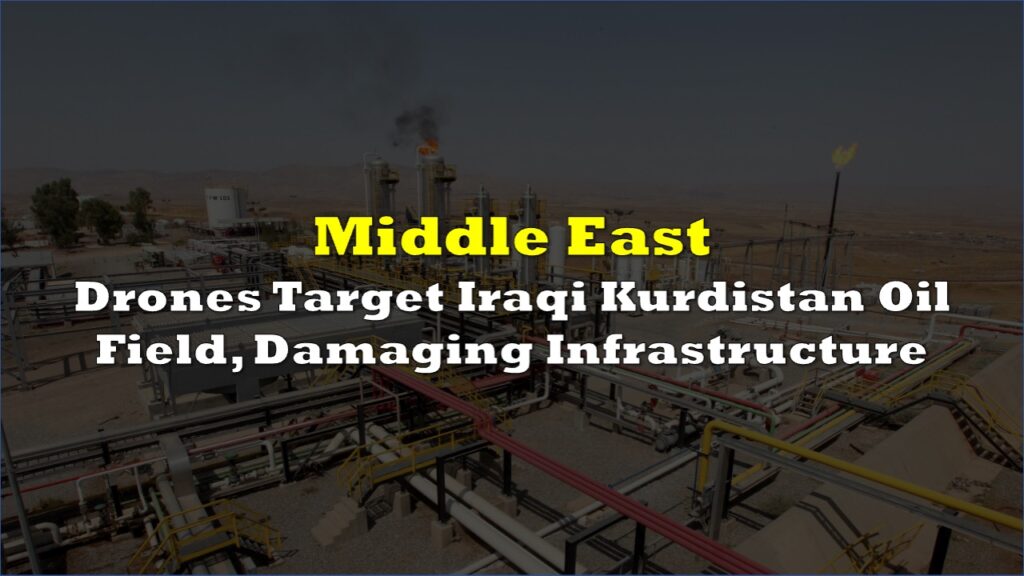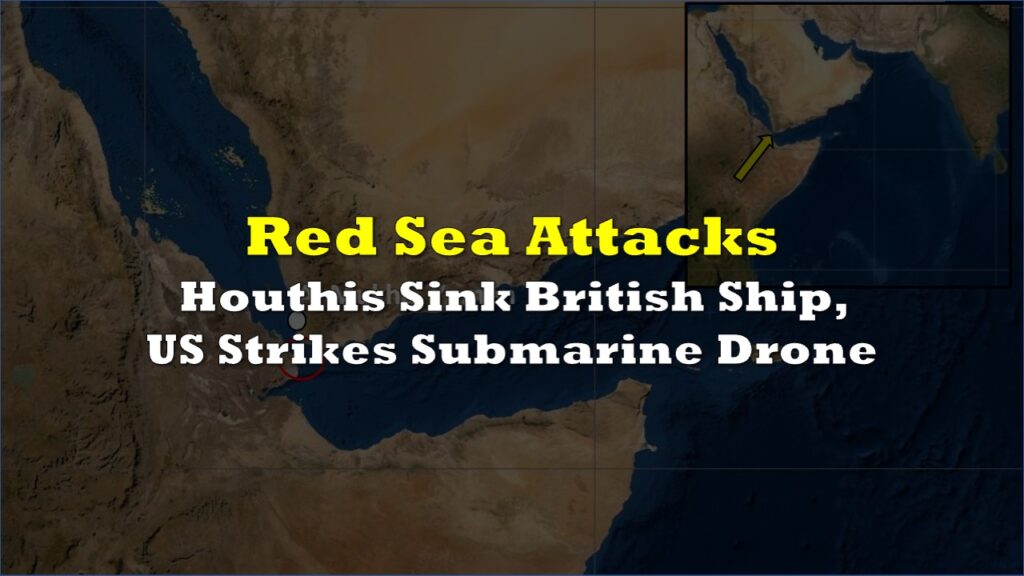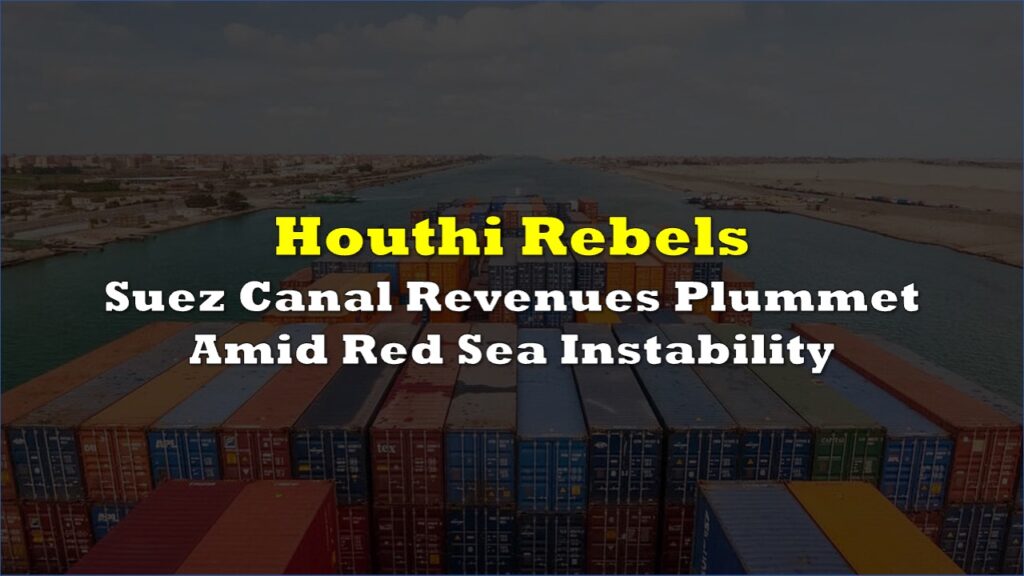Multiple undersea cables were severed in the Red Sea over the weekend, disrupting internet connectivity across parts of Asia and the Middle East, technology companies and monitoring groups reported Sunday.
The cable cuts affected the SMW4 and IMEWE fiber-optic systems near Jeddah, Saudi Arabia, according to NetBlocks, which monitors global internet access. Countries experiencing degraded connectivity included India and Pakistan.
⚠️ Confirmed: A series of subsea cable outages in the Red Sea has degraded internet connectivity in multiple countries including #Pakistan and #India; the incident is attributed to failures affecting the SMW4 and IMEWE cable systems near Jeddah, Saudi Arabia 📉 pic.twitter.com/cLsO3cxKbI
— NetBlocks (@netblocks) September 6, 2025
Microsoft confirmed the disruption impacted its Azure cloud computing services, announcing that network traffic through the Middle East “may experience increased latency due to undersea fiber cuts in the Red Sea.” The company said traffic not routed through the Middle East remained unaffected.
BREAKING:
— Visegrád 24 (@visegrad24) September 6, 2025
Several international undersea fiberoptic cables cut in the Red Sea, disrupting global internet connectivity.
Around 70% of the internet traffic between Asia and Europe goes through the Red Sea. It’s one of the main weapons the Houthis have. pic.twitter.com/nVD5lUtwU4
The cause of Saturday’s cable cuts was not immediately clear. While there has been ongoing concern about Yemen’s Houthi rebels potentially targeting undersea infrastructure as part of their Red Sea campaign over the Israel-Hamas war, the Iranian-backed group has previously denied responsibility for similar incidents.
Undersea cables form the backbone of global internet infrastructure, carrying 99% of intercontinental data traffic. Internet service providers typically maintain multiple access points and can reroute traffic when cables fail, though this often results in slower connection speeds for users.
The South East Asia–Middle East–Western Europe 4 cable is operated by Tata Communications, while the India-Middle East-Western Europe cable is run by a consortium overseen by Alcatel-Lucent.
Repairs to damaged undersea cables can take weeks, as specialized ships and crews must locate and access the damaged sections on the seafloor.
The Red Sea has become a critical shipping corridor and communications hub, but ongoing regional tensions have raised concerns about the vulnerability of critical infrastructure in the area.
Information for this story was found via the sources and companies mentioned. The author has no securities or affiliations related to the organizations discussed. Not a recommendation to buy or sell. Always do additional research and consult a professional before purchasing a security. The author holds no licenses.

